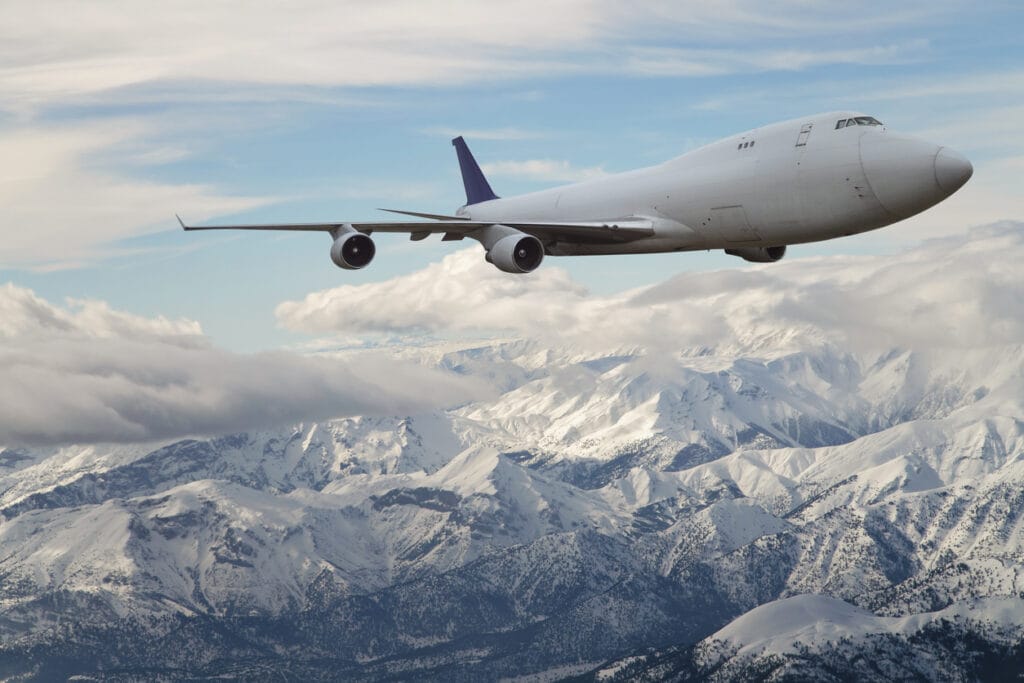- By TOP CHINA FREIGHT
- September 26, 2025
- Air Freight, Shipping
Table of Contents
Air freight cost per kg from China is a crucial consideration for businesses engaged in international trade. Whether shipping electronics, textiles, machinery, or perishable goods, knowing how much you will pay per kilo helps manage budgets and plan logistics effectively. Since costs fluctuate based on weight, cargo type, customs requirements, and destinations, businesses must understand how air freight pricing works to stay competitive.

What Determines Air Freight Cost per Kg from China?
Several factors affect how much you pay for air freight on a per-kilo basis. Airlines calculate charges based on actual weight or volumetric weight, whichever is higher. For example, lightweight but bulky goods may cost more because they occupy more cargo space. Additionally, the type of goods—whether standard, fragile, or dangerous—impacts rates. Fuel surcharges, peak season demand, and delivery schedules also contribute to overall expenses.
Understanding these elements ensures importers and exporters avoid unexpected costs. Moreover, businesses that plan shipments around low-demand seasons often benefit from reduced rates.
How Is Air Freight Per Kg Calculated?

Airlines and freight forwarders typically use two weight measures:
- Gross weight – the actual scale weight of the shipment.
- Volumetric weight – calculated as (Length × Width × Height) ÷ 6000 (in cm).
The higher of the two is considered the chargeable weight.
| Item Type | Gross Weight | Volumetric Weight | Charged Weight | Cost (USD per kg) |
|---|---|---|---|---|
| Electronics (small) | 100 kg | 80 kg | 100 kg | $5.50 |
| Apparel (bulky) | 80 kg | 120 kg | 120 kg | $4.80 |
| Machinery parts | 200 kg | 200 kg | 200 kg | $6.00 |
This calculation highlights why packaging optimization plays a vital role in cost efficiency.
What Is the Average Air Freight Cost per Kg from China?
On average, the air freight cost per kg from China ranges between $4.00 and $8.00 depending on cargo type, airline, and destination. High-demand routes, such as China to the USA or Europe, are often slightly more expensive compared to regional shipments within Asia. Urgent shipments through express services can go beyond $10 per kg.
The table below compares estimated per-kilo rates:
| Destination | Standard Rate (per kg) | Express Rate (per kg) | Transit Time |
|---|---|---|---|
| USA (Los Angeles) | $5.00 – $7.50 | $9.00 – $12.00 | 3 – 6 days |
| Europe (Frankfurt) | $4.80 – $7.20 | $8.50 – $11.00 | 4 – 7 days |
| South Africa (Johannesburg) | $5.50 – $8.00 | $9.50 – $12.50 | 5 – 8 days |
| India (Mumbai) | $4.20 – $6.50 | $7.50 – $10.00 | 3 – 5 days |
Why Choose Air Freight Instead of Sea Freight?

Although sea freight is cheaper for large volumes, air freight per kg offers significant benefits:
| Aspect | Air Freight | Sea Freight |
|---|---|---|
| Cost per kg | Higher ($4–$8) | Lower ($0.5–$2) |
| Transit time | 3–7 days | 25–40 days |
| Reliability | High (on-time delivery) | Moderate (weather delays) |
| Cargo type | Ideal for small, high-value, urgent | Suitable for bulk commodities |
Therefore, companies dealing with fast-moving goods, fashion cycles, or perishable items often prefer air freight despite higher charges.
How Do Customs and Documentation Affect Costs?

Customs clearance is another important factor in calculating air freight cost per kg from China. Missing or inaccurate paperwork can delay shipments, leading to storage charges at airports.
Essential documents include:
| Document | Purpose |
|---|---|
| Commercial Invoice | Declares value of goods |
| Packing List | Details shipment contents |
| Airway Bill | Contract between shipper and airline |
| Certificate of Origin | Identifies manufacturing country |
| Import/Export Licenses | Required for restricted items |
Moreover, businesses that partner with experienced freight forwarders often save money by avoiding costly errors in documentation.
Case Study: Shipping Electronics from Shenzhen to Los Angeles

A trading company in Shenzhen needed to ship 500 kg of electronics to Los Angeles. Let’s break down their costs:
- Chargeable weight: 500 kg
- Air freight rate: $5.80 per kg
- Base cost: $2,900
- Fuel surcharge: $350
- Customs clearance fees: $180
- Insurance: $70
Total Cost: $3,500
Although sea freight would have been cheaper, the company chose air freight to meet urgent retail deadlines in the US. Timely delivery helped the business avoid stockouts and gain additional sales revenue.
How to Reduce Air Freight Cost per Kg from China?
combining smaller consignments into one reduces per-unit cost.
shipping during non-peak seasons often lowers charges.
long-term agreements with forwarders usually secure better rates.
reducing volumetric weight can significantly cut charges.
secondary airports sometimes offer cheaper handling fees.
What Industries Benefit Most from Air Freight?
Certain industries rely heavily on air freight per kg due to their business models:
Electronics – demand quick market entry and low stockouts.
- Pharmaceuticals – require strict temperature control and fast delivery.
- Fashion and apparel – depend on seasonal trends and speed to market.
- Automotive parts – need urgent spare parts for production continuity.
- E-commerce – requires short delivery windows to satisfy global buyers.
Thus, companies in these sectors should consider air freight as a long-term strategy despite higher rates.
Logistics Trends Affecting Air Freight Costs
Recent developments in logistics significantly impact per-kilo rates:
- Digital tracking platforms improve visibility, reducing hidden costs.
- Sustainability efforts push airlines to adopt eco-friendly solutions, which may affect pricing.
- Global economic shifts such as fuel fluctuations and trade agreements directly change costs.
- Automation in warehouses speeds up cargo handling, improving efficiency.
Keeping up with these trends allows importers and exporters to forecast better and optimize costs.
Conclusion
Air freight cost per kg from China remains one of the most important metrics for businesses involved in international shipping. While charges may vary depending on weight, cargo type, customs clearance, and destination, the benefits of speed and reliability often justify the higher price compared to sea freight. Companies that carefully plan shipments, consolidate cargo, and optimize packaging can manage costs more effectively. Ultimately, understanding air freight pricing allows businesses to stay competitive and deliver products to global markets on time.
Need a Shipping Quote?
If you want expert guidance and peace of mind, our team is ready to assist.
TJ China Freight offers tailored solutions to help businesses of all sizes ship more reliably from China.

FAQ
Q1:What is the minimum weight for air freight from China?
Most forwarders accept shipments as small as 45 kg, but rates improve for 100 kg and above.
Q2:Can I ship dangerous goods by air from China?
Yes, but additional charges apply, and specialized documentation is required.
Q3:How fast is air freight compared to sea freight?
Air freight typically takes 3–7 days, while sea freight can take 25–40 days.
Q4:Do I need insurance for air freight shipments?
Insurance is optional but recommended, especially for high-value good
Q5:Why is volumetric weight important in air freight?
Because airlines charge based on space as well as weight, bulky goods may cost more.
